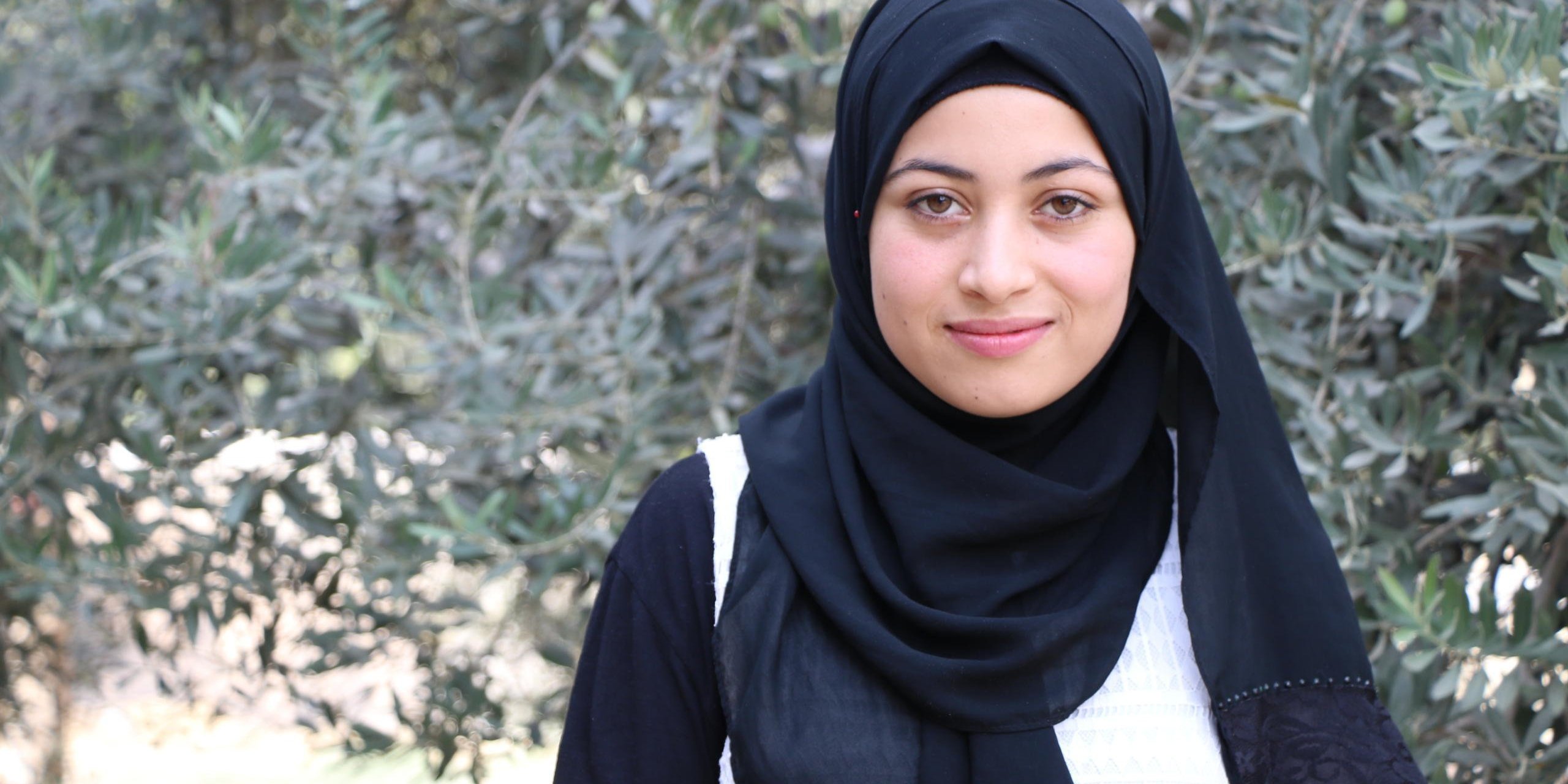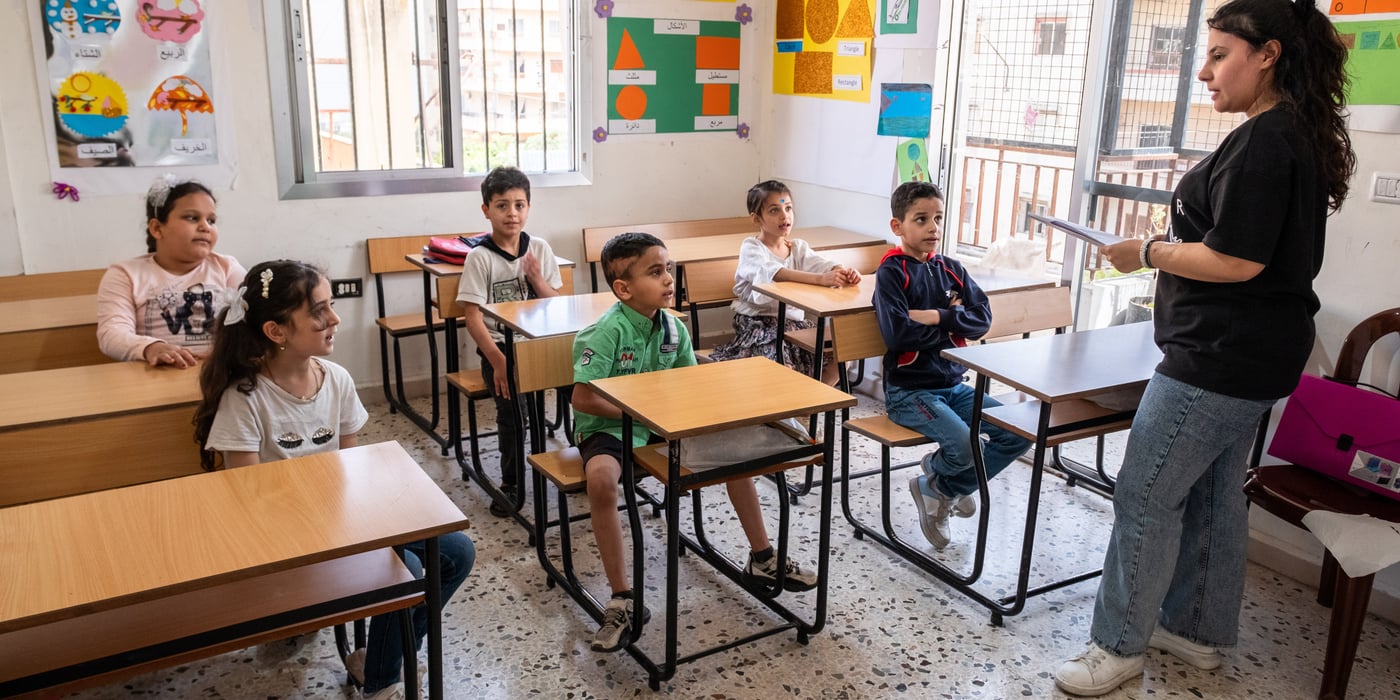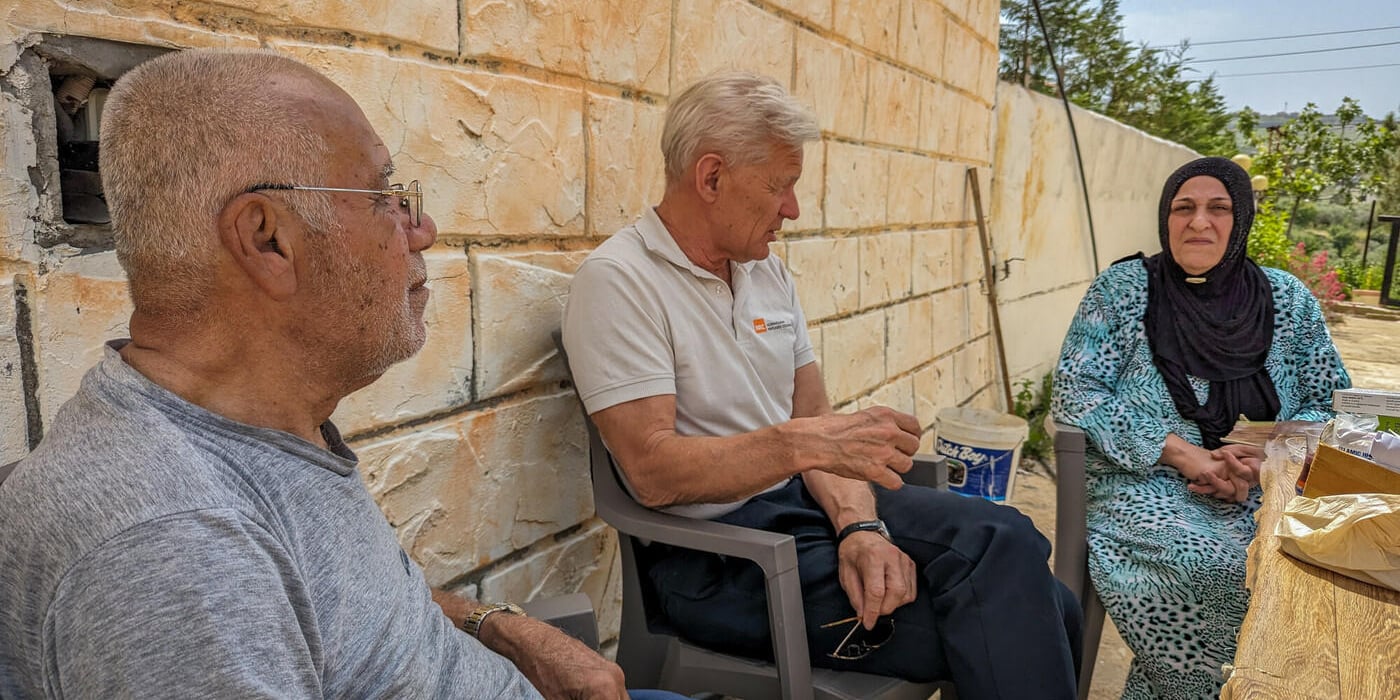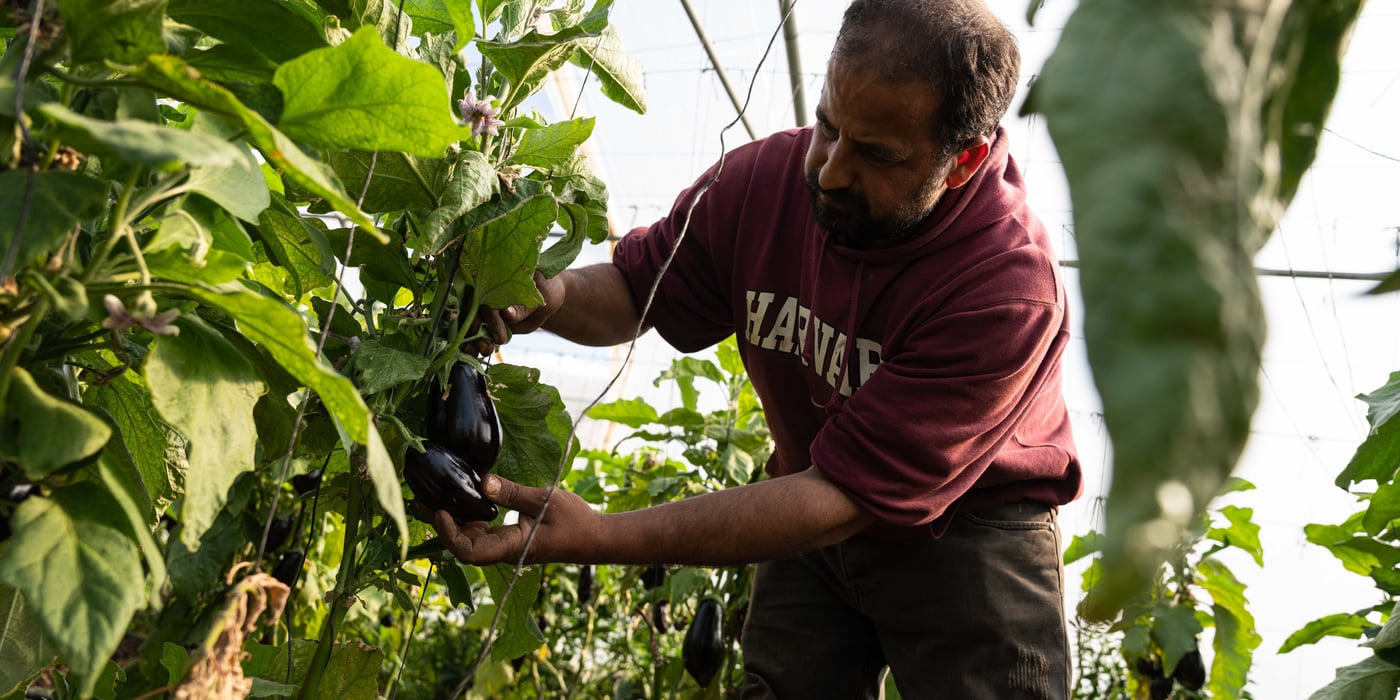
“I was told that grade 9 is very difficult, and it’s not easy to pass it especially since I attend the second shift schools in the afternoon for Syrian refugees. But, I wasn’t afraid at all when I sat for the official exams. The questions were easy,” says Yasmine.
Yasmine and her family fled Syria because of water, gasoline, and heating fuel shortage five years ago. “It was challenging to work in my electronic shop without electricity. I couldn’t pay the rent for two months as I barely received customers. We used old clothes to light fire during the cold days. We traveled to other villages to get bread,” says Fadi*, Yasmine’s father.” Today, they live in south Lebanon.
Challenges to access education
Like many young refugees in Lebanon, Yasmine experienced a lot of difficulties integrating in the Lebanese formal education.
“In Syria, we had one English class per week, so my language skills weren’t advanced,” says Yasmine. In Lebanon, subjects are taught in English and/or French but in Syria it’s in Arabic, which is the only language refugees speak. I thought of quitting school, but my father was strict about education,” Yasmine continues.
Family encouragement
Yasmine’s father insisted that she and her sisters repeated their grades to catch up with the Lebanese curriculums. “Despite all the barriers and harsh living conditions, I motivate my children to continue their education and keep learning,” says Fadi. “The majority of Syrian children I meet are working, married early or busy with domestic chores. I don’t want this for my children.”
The majority of Syrian children I meet are working, married early or busy with domestic chores. I don’t want this for my children.Fadi*, Yasmine’s father.
Faten*, Yasmine's mother, works in agriculture to support her family. Although, community members encourage her to send Yasmine to work she firmly disagrees. "I want Yasmine to reach higher education so she can find a job and establish a career when we return to Syria," she says.
Receiving support
Yasmine joined NRC’s learning support programme in 2015, studying English, Math and Arabic classes. “When I started NRC’s support program, things changed. The teachers were very cooperative and the lessons were interesting, interactive and relevant. Even if we didn’t understand the first time, they would explain again,” says Yasmine as she describes her experience with NRC’s education programme.
In Lebanon, NRC’s non-formal education programs and community outreach activities aim to help refugees re-integrate into the formal education system so children like Yasmine can finish school.
Dreaming big
“I was thrilled when I got my exams results and my parents were very proud. We had a party and celebrated my success with my five sisters and brother that day,” says Yasmine, whose grades where in the upper tier of Lebanese exams results.
Yasmine is a confident girl with a strong personality and big dreams. She wants to become a surgeon. "I want to help wounded people and I'm not afraid of blood. I always clean my siblings' wounds and apply sterile dressing on them," Yasmine concludes.
* Names have been changed for protection purposes.




